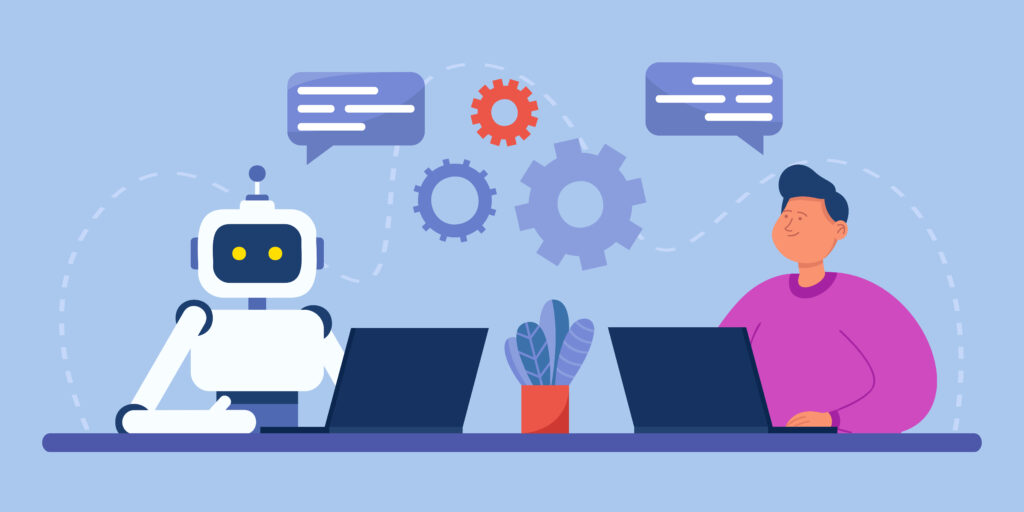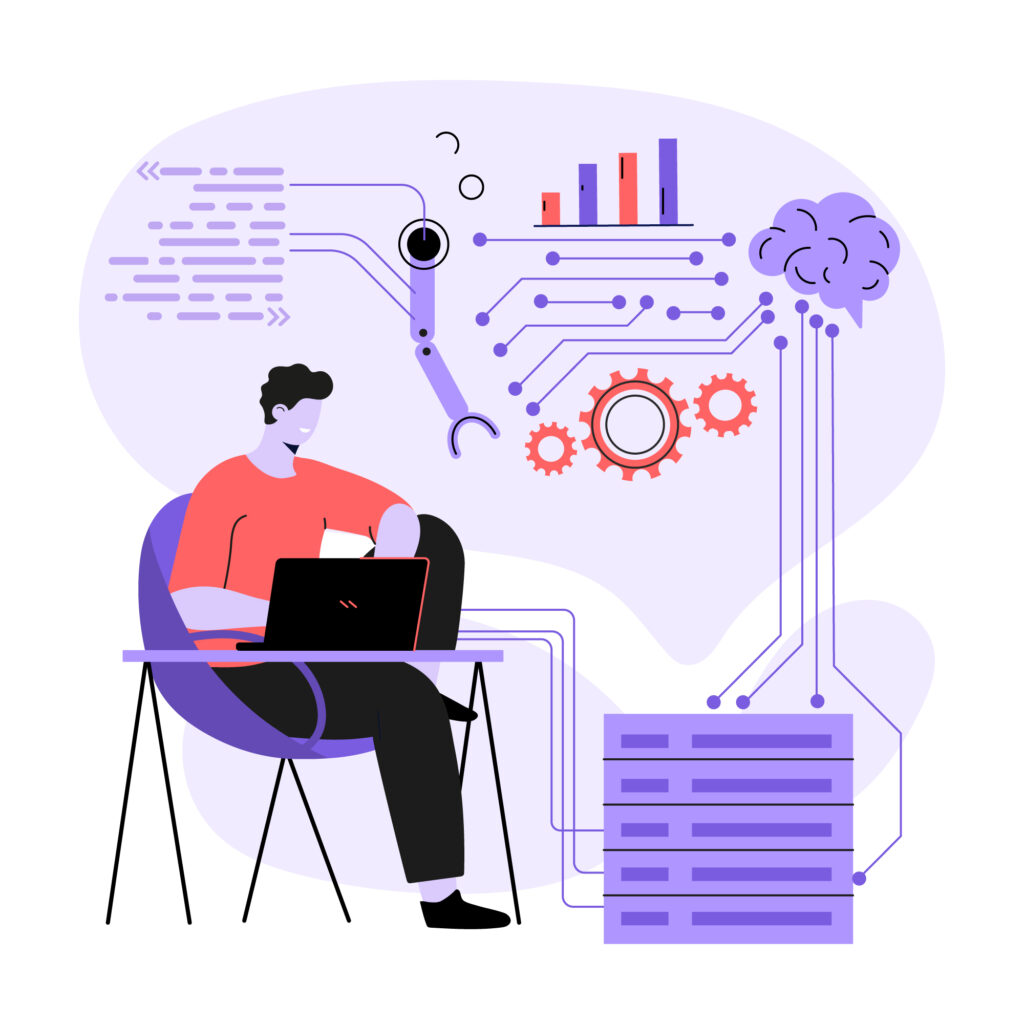With advanced AI at your disposal, your company is achieving things that you never imagined possible. Your customers are enjoying the fastest service, the operations are probably faster than electricity and your market intelligence has never been better. But then the unexpected occurs. A news headline flashes across your screen: “Your Company’s AI Discriminates Against Customers.” Your stomach sinks.
It is important to understand that such a scenario is not far from the realm of possibility. We have all read the stories: the AI that became racist, sexist, homophobic, and every other ‘ist’; the AI that invades privacy; the AI that inspires Black Mirror episodes that were based on dystopian futuristic technologies.
However, the stark reality that faces us while using artificial intelligence is that while AI holds the potential to be phenomenal, it also holds a lot of potential danger.
But here’s the good news: At this stage, you have the power to build something different for your business. You got to know what is responsible AI and how to implement it in your business. With AI implementation in place and being a part of your company’s guidelines, you will be able to embrace and promote all the benefits of AI while preventing any harm to people and your business reputation.
The journey to effective responsible artificial intelligence is not always smooth but is a necessity in this world we live in today. It is not simply about mitigating risks of legal action; it is about values, company culture, and the vision for the future that can be made possible by AI.
What is Responsible AI?
AI, as a technological wonder, is said to redefine industries, enhance health care, and even solve problems like climate change.
But what if things could be more picture-perfect? We’ve seen glimpses of this darker side of AI: filtering methods that prejudge female applicants, security systems that fail to correctly identify persons of color and flawed algorithms that reinforce prejudice.
The potential for AI to “hallucinate” or generate false information poses another significant risk. We’ve witnessed this AI hallucination: AI models produce biased content, discriminating against certain groups, or amplifying misinformation. These are not just technical glitches; they can have profound societal consequences.
Responsible AI is the perfect remedy for these risks. It is about creating AI that is not only smart but also moral and that acts fairly and honestly. This is like a set of guidelines for the use of Artificial Intelligence for the right purpose to enhance the well-being of society.
In the context of healthcare, responsible AI means that diagnostic algorithms are fair and effective across any demographic. In finance, it implies designing loan approval frameworks that do not continue to reinforce prejudice in lending. Similarly, in the criminal justice system, it means harnessing the power of AI for decision-making while not perpetuating an unfair cycle of discrimination.
If you ask what is Responsible AI is making AI trained on equitable and fair standards and making sure that future AI technology benefits mankind. By aligning AI with moral standards, we can create a future in which the AI is as good as it was advertised, positively changing the world.

The Stakes Are High
The negative impacts of AI are not some distant possible scenarios, but actual threats, that are already taking place, and which may pose a serious threat to an industry or firm. For instance, consider IBM which once had to respond to a legal complaint that involved claims of misuse of data on a weather application. (Know more)
No entrepreneur wants to be caught up in such a storm of numerous legal issues.
There’s Optum which has been accused of having an algorithm that delays treatment for sicker black patients than for white ones. A healthcare company, whose principle is to provide remedies to society, found on the other end of the stick accused of causing harm. This is not only a PR disaster; it is an absolute breach of trust, in its most basic sense of the word. (Know more)
A major financial giant, Goldman Sachs, faces controversy over allegations of gender discrimination regarding credit limits for the Apple Card. (Know more)
An algorithm, meant to be objective, perpetuates the very inequalities it should be blind to. Who can forget the Cambridge Analytica scandal which involved the leakage of millions of users’ data and threatened the reliability of Facebook?
These are not mere isolated cases that one can easily brush aside or ignore. It’s a pattern, a red flag pointing at the directions that we could be moving into when AI becomes deeper and more entrenched. The cases bring out the fact that the application of AI deepens existing prejudices and discriminations, and invades our privacy. This aspect alone results in significant reputational loss, huge legal expenses incurred, and raising ethical questions.
What Responsible AI Means for Your Business
AI must be a responsible one and it is not about compliance anymore but should also be designed so that it comes up with the least AI hallucinations. It is about more than just not making some black headlines or having some legal issues; it is about making your AI ethical all through.
In practice, responsible AI means Grounding AI with real-world information ensuring your AI systems are:
- Fair: Suppose, there is a hiring algorithm that repeatedly fails to select deserving candidates from the marginalized community. And that is not only unjust, it is unwise for any business to miss the potential that it has at its fingertips. Responsible AI aims at fairness and making sure that an opportunity of equal chance is present for everyone.
- Transparent: Consider a customer service chatbot that will provide answers that look as though they are random. Frustrating, right? Responsible AI refers to the practice of attempting to explain how an AI operates, the data it utilizes, and the reasons it arrives at certain conclusions.
- Accountable: In the wake of a technical glitch in an AI-assisted medical gadget, who bears the blame? When it comes to responsible AI, it’s quite clear. Clear accountability makes certain that problems are resolved on time and there is always a person of recourse for that technology.
- Privacy-Preserving: Take, for instance, a facial recognition system that takes your picture and stores it without your permission. Responsible AI always considers user privacy and complies with data protection laws by being careful with users’ information.
In addition to these principles, responsible AI is about creating correct and dependable AI systems. It is about making certain that AI should not make things worse and that it should improve the situation for everyone involved. By following the principles of responsible AI, you are not only trying to avoid harm; you are building a world in which AI would be positively beneficial to humanity.
9 Ways to Operationalize Responsible AI
Below is the step-by-step approach to implementing responsible AI in your business-
- Leverage Existing Infrastructure: If your company has any form of decision-making board on data such as a data governance board, then use this as a reference when developing your AI ethics program. This makes it possible for you to incorporate the ethical aspects in your decisions.
- Create a Tailored Ethical Risk Framework: Determine which ethical principles are most relevant to your sector and organization. Outline the kinds of risks you have in your AI applications, and then create a way of handling them.
- Learn from Healthcare: As mentioned earlier, ethical challenges have always been a sore point in the healthcare industry when addressing issues of patient care as well as data. Use their strategies to tackle issues such as informed consent, privacy, and autonomy regarding AI.
- Empower Product Managers: Provide instructions and resources to your product managers that will enable them to properly identify and address ethical challenges all through the life cycle of a product. It also means making a sound decision in areas such as trade-offs between explainability and accuracy.
- Build Organizational Awareness: Make sure that all the employees, from the top managers to the low-level workers, comprehend the risks of practical artificial intelligence applications. Brief them on the various ethical standards, and explain that they should seek to report any concerns they may have regarding any unethical issues in the future.
- Incentivize Ethical Behavior: Encourage high engagement by providing incentives for those who report and contribute to managing ethical concerns. In this case, assure your subordinates and clients that ethical practices are encouraged and appreciated at your company.
- Monitor and Engage Stakeholders: Closely track the actual effects that the AI systems you have implemented are bringing to the table. It is also important to solicit feedback from users and other stakeholders and make modifications where necessary. This element is crucial in establishing trust and can be accomplished by constantly providing clear information in the process.
- Grounding AI: Integrate AI grounding techniques into your development process to ensure AI systems are tethered to reliable sources of truth and human values. Grounding techniques can help mitigate biases, hallucinations, and other potential risks by ensuring AI outputs are traceable, explainable, and aligned with ethical principles.
- Utilize Human-in-the-Loop Approaches: Introducing humans in the loop that check and review outputs produced by the AI tool, especially in sensitive matters.

Additional Considerations
Responsible AI is not a switch that can be turned on and off once changes and improvements have been made. To truly embed it in your company’s DNA, consider these additional steps:
- Cultivate Diversity: Your AI is only as good as the people who build it. Make sure that your development teams contain a fairly broad set of viewpoints to avoid bias from influencing your algorithms. Just like in a jury, you ensure that there is representation from as many sides as possible to increase the chances of an impartial, or fair outcome.
- Regular Checkups: Even the healthiest systems require some level of maintenance now and then. You should occasionally audit your AI to identify any biases or other forms of abnormality that are likely to develop over time. It’s akin to giving your AI a check-up before it develops an uninvited issue.
- Stay Ahead of the Curve: Ethical questions have always followed the nature and development of AI, with new challenges emerging in tandem with new advancements. Make learning a priority. Get updated on current trends in the field, the best and recommended practices as well as current laws that regulate the application of AI. It is like buying your AI model a software update for ethics.
Conclusion
AI and Machine Learning can open up opportunities like no other technology in the past has been able to ever. However, it is crucial to acknowledge that this technological revolution is not entirely free from some significant ethical questions. As we find ourselves at the cusp of this new age, education regarding these technologies and the responsible use of AI becomes imperative.
Thus, by transforming ourselves through the knowledge and skills embedded in AI, we establish a powerful tool and promote the intelligent usage of responsible AI. The course towards an AI-positive future where responsible artificial intelligence is a product of human intellect and conscience is what the current times demand.
Are you ready to experience the full potential of AI without compromising on ethics or integrity? Bionic AI offers a transformative solution that empowers your business while upholding the highest standards of responsible AI practices. Request a demo now!